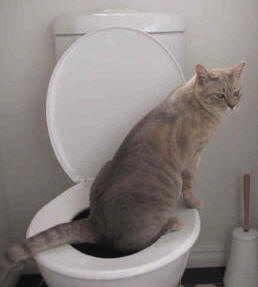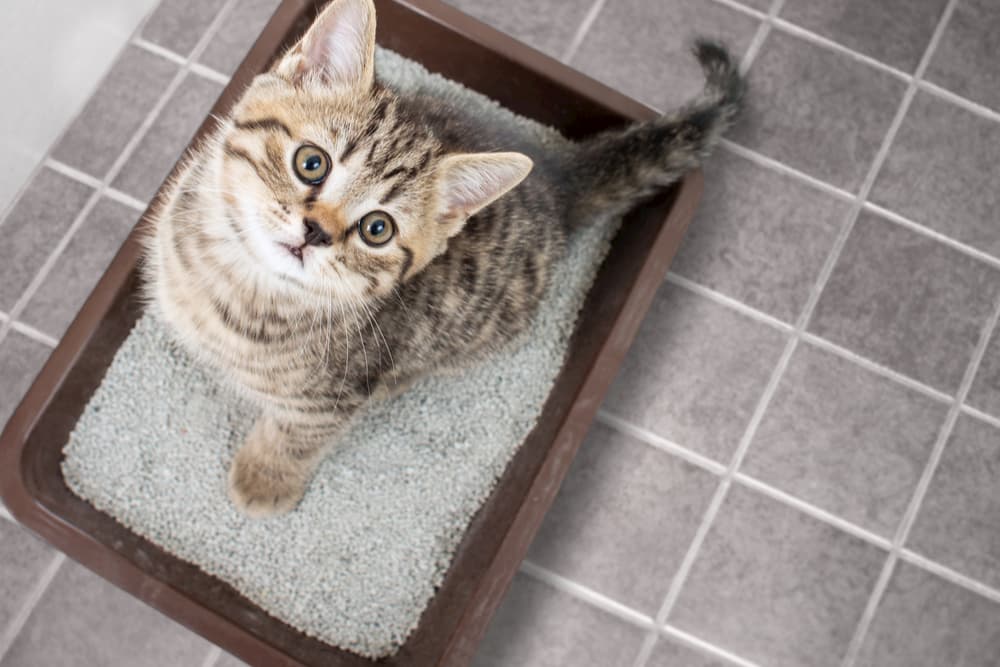An Outcomes of Flushing Animal Waste Down the Toilet
An Outcomes of Flushing Animal Waste Down the Toilet
Blog Article
Every person maintains their own rationale on the subject of Should you flush animal waste down the toilet.

When it concerns throwing away waste, particularly animal waste, lots of people typically turn to the hassle-free alternative of flushing it down the commode. Nonetheless, this seemingly easy service can have serious consequences for the setting and public health. In this article, we'll discover why flushing pet waste down the commode is a negative concept and supply different methods for appropriate disposal.
Introduction
Appropriate garbage disposal is important for keeping environmental sustainability and public health. While it may appear harmless to purge animal waste down the bathroom, it can result in various issues, both for the setting and human wellness.
Risks of flushing animal waste
Ecological influence
Purging animal waste introduces harmful bacteria and virus right into rivers, which can adversely influence water ecological communities. These pathogens can infect water sources and harm aquatic life, interfering with delicate ecosystems.
Public health issues
Pet waste contains dangerous bacteria such as E. coli and Salmonella, which can pose significant wellness dangers to humans. Flushing pet waste down the commode can infect water products, leading to the spread of conditions and infections.
Alternatives to flushing
Instead of flushing animal waste down the toilet, there are a number of alternate disposal techniques that are more environmentally friendly and hygienic.
Composting
Composting animal waste is an environmentally friendly means to take care of it. By composting, raw material is broken down into nutrient-rich soil, which can be utilized to fertilize yards website and plants.
Landfill disposal
Getting rid of animal waste in a landfill is one more alternative. While not as environmentally friendly as composting, it is a much safer alternative to flushing, as it prevents the contamination of water sources.
Animal waste disposal systems
There are customized animal waste disposal systems offered that safely and hygienically get rid of pet waste. These systems often make use of enzymes to break down waste and remove smells.
Steps to correct animal waste disposal
To guarantee correct disposal of animal waste, comply with these actions:
Scooping and getting waste
Regularly scoop and bag pet waste utilizing eco-friendly bags. This protects against waste from infecting the atmosphere.
Making use of marked waste containers
Dispose of bagged pet waste in marked waste containers, such as garden compost containers or garbage dump containers. Stay clear of flushing it down the bathroom whatsoever expenses.
Cleaning up litter boxes and animal locations regularly
Regularly tidy litter boxes and pet areas to prevent the build-up of waste and germs. Use pet-safe cleansing products to keep hygiene.
Advantages of appropriate disposal methods
Embracing correct disposal techniques for pet waste offers numerous benefits:
Minimized environmental pollution
Correct disposal techniques lower the risk of environmental pollution, securing waterways and environments from contamination
Lessened risk of water contamination.
By avoiding flushing pet waste down the bathroom, the threat of water contamination is significantly decreased, securing public health.
Improved cleanliness and health
Correct disposal approaches advertise far better hygiene and health, developing a more secure atmosphere for both people and animals.
Conclusion
In conclusion, purging pet waste down the commode is unsafe to the setting and public health. By embracing different disposal techniques and complying with appropriate waste management practices, we can minimize the unfavorable influence of animal waste and add to a cleaner, much healthier earth.
What To Do With Dog Poo – The Do's And Don'ts Of Disposing Of Faeces
Dog poo bins
Some councils provide dedicated dog waste bins in popular dog-walking areas that can take dog poo that has been bagged but you can legally dispose of dog waste in any public litter bin, as long as it is securely bagged. This also applies to your wheelie bin at home.
Do not flush
Water companies do not recommend flushing dog faeces down the toilet because certain parasites can survive the water processing treatment and are potentially harmful to humans. You should also never consider flushing dog poo that has been bagged down the toilet as the bags will not break down and instead create severe blockages in the sewage system.
In the woods
The Forestry Commission promotes a ‘stick and flick’ method for dealing with waste in the woods. This means finding a stick and using it to flick any poo from off the path so that it is out of the way of other walkers. You could also bury it as long as it is not in an area where there might be livestock.
Livestock
Parasites found in dog poo can be transmitted to livestock if they inadvertently eat infected faeces that has been left on grazing land. This could result in the death of sheep or abortion in cattle so you should always make sure you pick up your dog’s waste in fields where livestock could be present.

Regularly tidy litter boxes and pet areas to prevent the build-up of waste and germs. Use pet-safe cleansing products to keep hygiene.
Advantages of appropriate disposal methods
Embracing correct disposal techniques for pet waste offers numerous benefits:
Minimized environmental pollution
Correct disposal techniques lower the risk of environmental pollution, securing waterways and environments from contamination
Lessened risk of water contamination.
By avoiding flushing pet waste down the bathroom, the threat of water contamination is significantly decreased, securing public health.
Improved cleanliness and health
Correct disposal approaches advertise far better hygiene and health, developing a more secure atmosphere for both people and animals.
Conclusion
In conclusion, purging pet waste down the commode is unsafe to the setting and public health. By embracing different disposal techniques and complying with appropriate waste management practices, we can minimize the unfavorable influence of animal waste and add to a cleaner, much healthier earth.
What To Do With Dog Poo – The Do's And Don'ts Of Disposing Of Faeces
Dog poo bins
Some councils provide dedicated dog waste bins in popular dog-walking areas that can take dog poo that has been bagged but you can legally dispose of dog waste in any public litter bin, as long as it is securely bagged. This also applies to your wheelie bin at home.
Do not flush
Water companies do not recommend flushing dog faeces down the toilet because certain parasites can survive the water processing treatment and are potentially harmful to humans. You should also never consider flushing dog poo that has been bagged down the toilet as the bags will not break down and instead create severe blockages in the sewage system.
In the woods
The Forestry Commission promotes a ‘stick and flick’ method for dealing with waste in the woods. This means finding a stick and using it to flick any poo from off the path so that it is out of the way of other walkers. You could also bury it as long as it is not in an area where there might be livestock.
Livestock
Parasites found in dog poo can be transmitted to livestock if they inadvertently eat infected faeces that has been left on grazing land. This could result in the death of sheep or abortion in cattle so you should always make sure you pick up your dog’s waste in fields where livestock could be present.

I discovered that piece about Don't Flush Your Pets Poo Down The Loo, Vet Warns while doing a search on the web. Are you aware of another person who is in to the niche? Please feel free to share it. Thanks for your time invested reading it.
Click On This Link Report this page